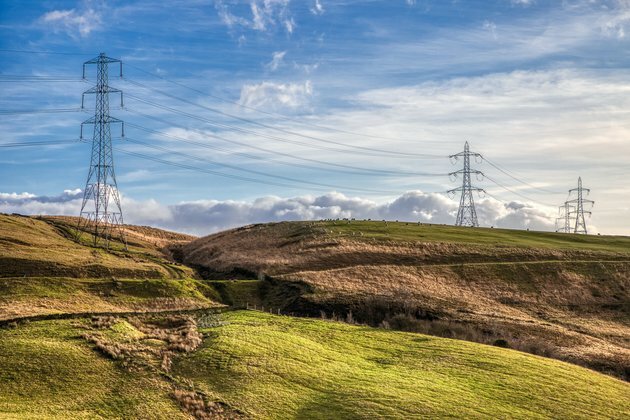Energy prices: here's what UK government can do to cut household bills
The Conversation
14 Jan 2022, 20:10 GMT+10

According to the boss of the UK's biggest energy supplier, Centrica, high gas and electricity prices could last for two years. With many already unnerved by the fact that the average UK energy bill is set to rise in April by about 50% to nearly Pound 2,000, this has further fuelled fears of a cost of living catastrophe in 2022 for millions of poorer households.
It is hard to find a definitive explanation for this situation from government ministers or industry leaders which goes beyond "global conditions". But the truth is that recent domestic energy policies, and how the UK responded to international conditions, have also played their part.
For example, while it was still a member of the EU, the UK should have strongly opposed increasing dependence upon gas from Russia. Currently, the energy giant Gazprom provides around 40% of Europe's requirements, a proportion likely to increase if the new Nord Stream 2 pipeline to Germany is given the go-ahead to be used. Apart from the geopolitical concerns of giving so much leverage to Vladimir Putin, it surely makes economic common sense not to be over reliant on just one supplier.
After the closure of its biggest gas storage facility, the UK was at least wise enough to have increased the volume of imports of liquefied natural gas (mostly from Qatar) as well as pipeline deliveries from Norwegian gas fields. But there are local measures to be considered too.
For example, the government should be taking a stronger position on developing the Cambo oil field off the Shetland Islands. Facing political pressure, Shell pulled out of the project at the end of 2021, while the largest investor is reportedly getting cold feet. This could mean leaving the production of an estimated 53.5 billion cubic feet of gas undeveloped, not to mention 180 million barrels of oil.
This is a missed opportunity to source oil and gas where it is needed rather than using energy to transport it across the globe. It also represents a significant loss to the broader UK economy, where tax revenues from the offshore oil sector have fallen in the last year to Pound 250 million. In 2015 the figure was Pound 500 million.
There are also 150,000 people working in the UK offshore sector, for which Cambo might have secured jobs. And while we would all like to reduce our carbon emissions, the reality is that the world will continue to consume around 100 million barrels of oil every day for a long time to come.
Why is it preferable to encourage international companies to source oil off Angola or Malaysia? If it is going to be used in the UK, it is better to produce it in the UK, creating jobs and boosting tax revenues.
The same applies to the UK's large shale gas reserve potential, which is being foreclosed over concerns about earthquakes.
And while the UK cannot set the international wholesale price of natural gas, there are domestic policy changes which could significantly mitigate the current situation.
Misplaced subsidies
To address higher retail prices for gas and electricity, numerous commentators have been making the point that Ofgem, the energy regulator, could reduce or eliminate the green levies and network charges being used in support of renewable generation. According to Ofgem, nearly half the consumer energy bill comprises network costs and environmental costs, while less than 30% is the wholesale price of energy.
As my recent research shows, the burden of supporting renewable energy falls disproportionately on lower income households. (This is not just a problem in the UK, but in every country encouraging renewable energy with various subsidies.)
In effect, wealthy people living in a large detached home with a heat pump and solar panels are being subsidised in consuming renewable energy by low-income families living in rented accommodation.
Support for investment in renewable energy needs to be changed, moving the burden from consumers to investors. Currently, with the network providing connection to the grid plus energy sources to back up intermittent output, renewable investors have a free ride. Levies which fund this should not be included in household energy bills when investors could easily absorb the cost without it acting as a deterrent.
On the subject of bills, cutting VAT on fuel would be useful, but the benefits would not be large. As for the recently floated idea of a windfall tax on offshore oil, this is not a solution. Taking away profits whenever prices happen to increase is a guaranteed way of discouraging price-reducing production.
For the time being, the UK now has the worst of both worlds: a misguided attempt to combine competition between energy retailers with price caps on what consumers pay for their bills. Instead it should either let prices be determined by markets and provide help to those in fuel poverty, or regulate the price, guaranteeing a return to energy retailers. Not a mix of the two. So although the UK cannot determine the global price for energy, the government still has plenty of options which it could use to improve the situation for millions of struggling bill payers.
Author: Lawrence Haar - Senior Lecturer in Finance, University of Brighton 
 Share
Share
 Tweet
Tweet
 Share
Share
 Flip
Flip
 Email
Email
Watch latest videos
Subscribe and Follow
Get a daily dose of Mexico Star news through our daily email, its complimentary and keeps you fully up to date with world and business news as well.
News RELEASES
Publish news of your business, community or sports group, personnel appointments, major event and more by submitting a news release to Mexico Star.
More InformationLifestyle
SectionDrink-driving targeted in long weekend crackdown
DUBLIN, Ireland - An Garda Siochana and the Road Safety Authority (RSA) are urging motorists to avoid driving under the influence of...
Man not the product of evolution, world-acclaimed naturalist argued
One halcyon spring day in 1903, the 69-year-old anatomist and naturalist Dr. James Bell Pettigrew sat at the top of a sloping street...
New York office market rebounds as big investors hunt for deals
NEW YORK CITY, New York: New York's office market is showing signs of a comeback as major investors, including Blackstone, scout for...
Paank reports severe human rights violations across Balochistan
Balochistan [Pakistan], March 15 (ANI): Paank, the human rights department of the Baloch National Movement, has reported alarming human...
'Freakier Friday' trailer: Lindsay Lohan, Jamie Lee Curtis reunite for multigenerational body-swap adventure
Washington [US], March 15 (ANI): Disney has officially released the first trailer for 'Freakier Friday', the long-awaited sequel to...
Dubai lights up with spectacular displays as part of 'RamadanInDubai' campaign
Dubai [UAE], March 14 (ANI/WAM): Dubai has been transformed into a vibrant spectacle of light and artistry for the holy month of Ramadan,...
International
SectionVirginia governor warns US must fast-track fusion or fall behind China
NEW YORK CITY, New York: The U.S. must accelerate its efforts to develop fusion energy or risk losing its edge to China, Virginia Governor...
China now dominates shipbuilding; US faces security risks
WASHINGTON, D.C.: In the past 20 years, China has become the world's top shipbuilder, producing more than half of all commercial ships....
New York fires 2,000 prison guards after wildcat strike
ALBANY, New York: New York fired over 2,000 prison guards this week for not returning to work after a weeks-long strike that disrupted...
China hits Canadian agriculture with tariffs in trade retaliation
BEIJING, China: China has announced new tariffs on Canadian agricultural and food products in retaliation for Canada's recent duties...
One dead, three injured as RV flips in Texas storm
ENNIS, Texas: A man died, and three of his family members were injured when their RV flipped several times during a strong storm at...
Man not the product of evolution, world-acclaimed naturalist argued
One halcyon spring day in 1903, the 69-year-old anatomist and naturalist Dr. James Bell Pettigrew sat at the top of a sloping street...












